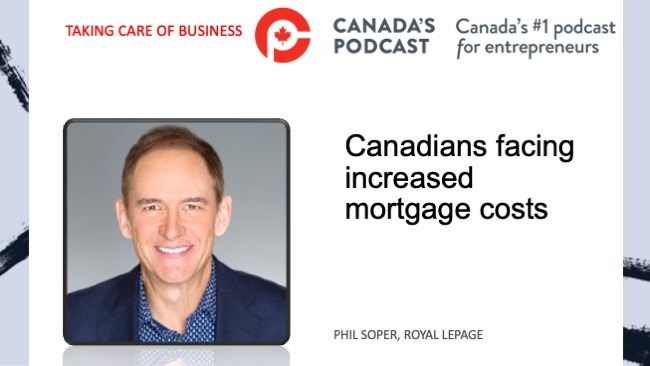Home sales recorded over Canadian MLS systems posted a 1.4 per cent increase from February to March 2023. The small rise built on an increase of the same size in February, marking the first back-to-back monthly gains in more than a year. A standout in March was a big bounce in sales in B.C.’s Fraser Valley, reported the Canadian Real Estate Association on Friday.
But the number of transactions in March 2023 came in 34.4 per cent below a historically strong March 2022. The
March 2023 sales figure was comparable to what was seen for that month in 2018 and
2019. It was also the smallest year-over-year decline since last September, added the CREA report.

Blue Bird
“As the spring market heats up and it looks as though some buyers are coming off the sidelines, it’s important to remember that the intense market conditions of recent years have not gone anywhere, they’ve just been on pause,” said Jill Oudil, Chair of CREA. “With buyers re-entering a market with historically low supply, homes are not only selling but selling faster.”
“The 2023 spring housing market is getting going after a tough 2022, and the green shoots continued to pile up in March,” said Shaun Cathcart, CREA’s Senior Economist. “Sales are trending up, markets have tightened considerably,
the Bank of Canada is on hold, and the MLS Home Price Index is stabilizing across the country. That said, the supply issue is still with us. New listings are at 20-year lows.”
The CREA report noted:
- The number of newly listed homes dropped a further 5.8 per cent on a month-over-month basis in March. New supply is
currently at a 20-year low; - The sales-to-new listings ratio jumped up to 63.5 per cent, the tightest market in a year. The long-term average for this measure is 55.1 per cent;
- There were 3.9 months of inventory on a national basis at the end of March 2023, down from 4.1 months at the end of
February and the lowest level since last October. It’s also now more than a full month below its long-term average; - The Aggregate Composite MLS Home Price Index (HPI) was up 0.2 per cent on a month-over-month basis in March 2023 – the first increase since February 2022.;
- The Aggregate Composite MLS HPI now sits 15.5 per cent below year-ago levels, a smaller decline than in February;
- The national average home price was $686,371 in March, down 13.7 per cent from March 2022 but up
almost $75,000 from its January 2023 level; - Excluding the Greater Toronto Area and Greater Vancouver from the calculation cuts more than $136,000 from the
national average price.
Also on Friday, CREA updated its forecast for this year and 2024.
It said 492,674 properties are forecast to trade hands in 2023, a 1.1 per cent decline from 2022.
The national average home price is forecast to decline 4.8 per cent on an annual basis to $670,389 in 2023.
National home sales are forecast to rise 13.9 per cent to 561,090 units in 2024 and the national average home price is forecast to recover by 4.7 per cent from 2023 to 2024 to around $702,200, putting it on par with 2022.
The March CREA report as well as its forecast report can be found here.
Rishi Sondhi, Economist with TD Economics, said March marks the second consecutive month of higher sales, with some boost likely coming from lower interest rates amid a solid job market. In addition, buyer psychology was probably helped by the Bank of Canada’s pause early in the month.
“Our forecast assumes further sales gains are in the cards this year, although an important downside risk stems from looming regulatory changes that will make it harder to qualify for mortgage,” he said.
“Average home prices also picked up for the second straight month, which is partly a function of improving demand but also because low levels of inventory are resulting in tighter conditions and creating a multi-bid backdrop for available properties. Indeed, new listings now sit 25 per centbelow their post-Global Financial Crisis average. Sellers will likely need to see more evidence of a sustained pickup in activity and prices before listings turn meaningfully higher.”
Robert Kavcic, Senior Economist with BMO Economics, said: “We’ve long forecasted a decline in national home prices of about 20 per cent, as higher interest rates clean out the market froth. That asset price adjustment appears largely complete. The next leg of this real estate cycle will be dictated by how well the real economy holds up in the second half of the year, if there is a meaningful upward move in the jobless rate—we suspect that any deterioration will be moderate—and, as always, the path of interest rates. In the meantime, home prices across many markets could be trending stable to modestly higher.”

(Mario Toneguzzi is Managing Editor of Canada’s Podcast. He has more than 40 years of experience as a daily newspaper writer, columnist, and editor. He worked for 35 years at the Calgary Herald, covering sports, crime, politics, health, faith, city and breaking news, and business. He works as well as a freelance writer for several national publications and as a consultant in communications and media relations/training. Mario was named in 2021 as one of the Top 10 Business Journalists in the World by PR News – the only Canadian to make the list)
About Us
Canada’s Podcast is the number one podcast in Canada for entrepreneurs and business owners. Established in 2016, the podcast network has interviewed over 600 Canadian entrepreneurs from coast-to-coast.
With hosts in each province, entrepreneurs have a local and national format to tell their stories, talk about their journey and provide inspiration for anyone starting their entrepreneurial journey and well- established founders.
The commitment to a grass roots approach has built a loyal audience with over 120,000 downloads and thousands of subscribers on all our social channels and YouTube. Canada’s Podcast is proud to provide a local, national and international presence for Canadian entrepreneurs to build their brand and tell their story.





